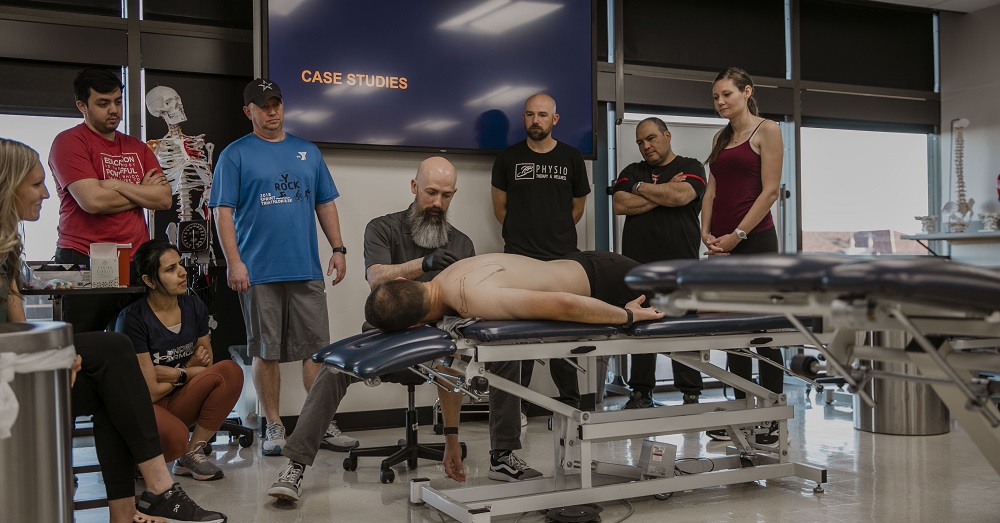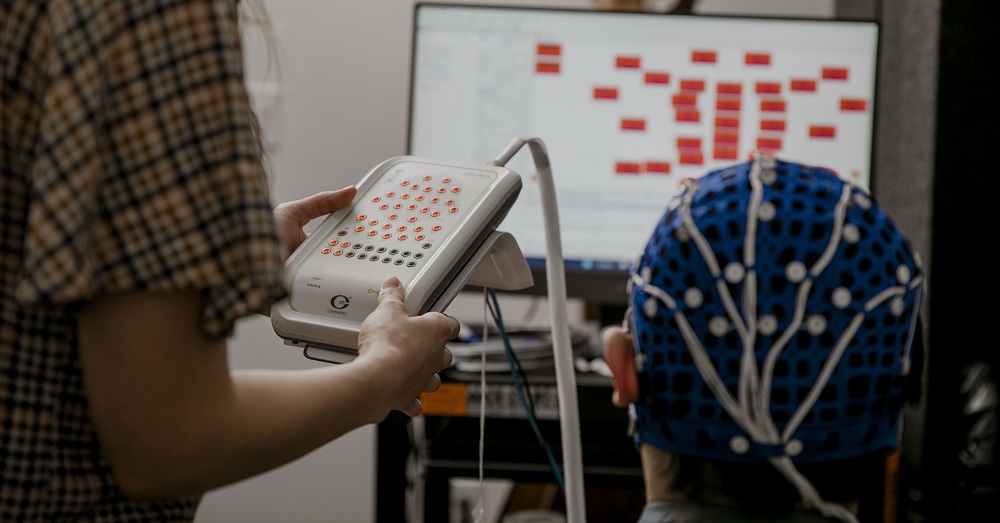A Look at Two Rehabilitation Sciences Programs at TTUHSC
The Ph.D. and ScD programs in the Department of Rehabilitation Sciences share a common overarching objective: to equip students with the knowledge and skills to become leaders in rehabilitation, research, and education.

The ScD degree emphasizes applying scientific knowledge in professional practice
Rehabilitation sciences is a multidisciplinary field that focuses on advancing knowledge and techniques to improve the quality of life for individuals with potentially disabling health conditions. The Texas Tech University Health Sciences Center (TTUHSC) School of Health Professions offers two highly respected terminal degree programs in this field: the Ph.D. in Rehabilitation Science and the ScD in Rehabilitation Sciences.
While both degrees share a common objective, they also have significant differences. This article explores the similarities and differences between these two programs to help prospective students make informed decisions about their academic and career paths.
Similarities Between the Programs

The Ph.D. in rehabilitation sciences is research-focused
The Ph.D. and ScD programs at TTUHSC share a common overarching objective: to equip students with the knowledge and skills necessary to become leaders in rehabilitation, research, and education. Students in both programs engage in rigorous academic coursework, research projects, and scholarly activities to develop expertise in their chosen areas of specialization.
Both programs emphasize an interdisciplinary approach to rehabilitation science, recognizing the complex nature of pain, injury, and illness and the need for collaboration across various fields and professions. Students will work with faculty members from diverse backgrounds, including athletic training, physical therapy, and occupational therapy. Students in the Ph.D. program also work with faculty from audiology, speech-language pathology, and other related disciplines.
Research is a fundamental component of both programs. Students are exposed to advanced research methodologies and techniques, enabling them to conduct original and collaborative investigations in rehabilitation science. The research experiences in these programs contribute to the existing body of knowledge and promote evidence-based practices in the field.
How the Programs Differ
One of the primary distinctions between the Ph.D. and ScD programs is the type of degree conferred upon completion. The Ph.D. degree is research-focused, whereas the ScD degree emphasizes applying scientific knowledge in professional practice. The choice between these two degrees depends on long-term career goals and aspirations. Another critical difference between the degrees is the Ph.D. is a face-to-face program, whereas the ScD is a blended online program.
Additionally, the Ph.D. program offers a broader focus, allowing students to delve into various areas of rehabilitation research in movement or communication disorders. The program aims to develop well-rounded scholars and researchers capable of addressing the complex challenges in rehabilitation science.
In comparison, the ScD program prepares students seeking to enhance a career in clinical practice or leadership within rehabilitation. This blended program emphasizes advanced clinical skills, evidence-based practice, and applying research findings to real-world rehabilitation settings. Students in the ScD program may gain new professional opportunities in organizational administration and teaching.
While both programs feature a blend of coursework, research, and scholarly activities, their curriculum structures vary. The Ph.D. program typically involves a more extensive research component, with students dedicating much of their time to conducting independent research and writing a dissertation. In contrast, the ScD program allocates more time to clinical coursework, allowing students to develop advanced clinical skills and professional competencies.
The Ph.D. and ScD programs can lead to diverse career opportunities. Graduates of the Ph.D. program often pursue academic careers as professors or researchers in universities, research institutions, or government agencies. They may also contribute to policy development, consultancy, or leadership positions within the rehabilitation sector. In contrast, ScD program graduates are well prepared for clinical practice, assuming roles as supervisors, administrators, or educators. They may work in schools, universities, hospitals, rehabilitation centers, community clinics, or private practice settings. The ScD program also equips students with the skills necessary for healthcare policy advocacy and development.
Which Program is Right for You?
The Ph.D. in Rehabilitation Science and the ScD in Rehabilitation Sciences programs at TTUHSC share a joint commitment to advancing knowledge and expertise in rehabilitation sciences. Choosing between the programs requires careful consideration of one's career goals, research interests, and preferred program structure.
While both programs share common objectives and interdisciplinary approaches, they differ in degree type, program focus, curriculum structure, delivery method, and career outcomes. Prospective students should thoroughly assess these factors considering their long-term goals, research interests, and clinical aspirations when deciding between the Ph.D. and ScD programs. Both degrees provide a solid foundation for contributing to the field of rehabilitation science and positively impacting the lives of people with disabilities, ultimately paving the way for a successful and fulfilling career in rehabilitation sciences.
Related Stories
TTUHSC Receives $1 Million Gift from Amarillo National Bank to Expand and Enhance Pediatric Care in the Panhandle
TTUHSC School of Medicine leaders accepted a $1 million philanthropic gift from Amarillo National Bank on Tuesday (Feb. 10), marking a transformational investment in pediatric care for the Texas Panhandle.
Texas Tech University Health Sciences Center Permian Basin Announces Pediatric Residency Program Gift
TTUHSC Permian Basin, along with the Permian Strategic Partnership and the Scharbauer Foundation, Feb. 5 announced a gift that will fund a new pediatric residency.
The Ph.D. Programs that Shape Health Care
The Graduate School of Biomedical Sciences Ph.D. programs at TTUHSC provide the foundation, mentorship and research opportunities you need to pursue groundbreaking work.
Recent Stories
National Academy of Inventors Names TTUHSC Faculty Senior Members
The National Academy of Inventors (NAI) has designated two current and one former TTUHSC faculty researchers as Senior Members.
The John Wayne Cancer Foundation Surgical Oncology Fellowship Program at Texas Tech University Health Sciences Center Announced
TTUHSC is collaborating with the John Wayne Cancer Foundation and has established the Big Cure Endowment, which supports the university’s efforts to reduce cancer incidence and increase survivability of people in rural and underserved areas.
TTUHSC Receives $1 Million Gift from Amarillo National Bank to Expand and Enhance Pediatric Care in the Panhandle
TTUHSC School of Medicine leaders accepted a $1 million philanthropic gift from Amarillo National Bank on Tuesday (Feb. 10), marking a transformational investment in pediatric care for the Texas Panhandle.
